Cancer Prevention and Nutrition: Finding the Truth about Foods
When it comes to cancer prevention and nutrition, don’t believe everything you hear. It’s easy to get lost in the woods of food advertising. Dozens of companies are vying for your attention, convincing you of the health benefits of the latest “superfood” product they sell.
Cancer prevention and nutrition is not a search for miracle foods or supplements. The benefits of an overall healthy lifestyle and diet far outweigh the importance of any one nutrient or food. This article is a guide to help you step back to see the big picture, and give you key health tips for cancer prevention and nutrition.
Key #1 Maintain an Optimal Diet for Cancer Prevention
We know that environment and nutrition are related to cancer risk in various ways. Studies worldwide show different types and frequencies of cancers across different regions and cultures. In terms of cancer prevention and nutrition, it’s rarely possible to pin down any one single factor as a cause of cancer, or identify any one food as protective. With the exception of lung cancer and tobacco smoking, the most common cancers in wealthy countries like the USA – including breast, colorectal and prostate – have no single external cause.
Since there is no single external cause, cancer prevention and nutrition is about maintaining the body’s overall ability to cope metabolically with many different stressors. Eating an optimal, nutrient-dense diet is a key part of maintaining the body’s ability to cope. As one expert puts it, “Cancer protection mainly derives from a systemic metabolic environment that promotes healthy cell replication and tissue integrity.”
The foundation for cancer prevention and nutrition is maintaining a healthy diet overall. The basic guidelines for healthy eating are:
- nine servings of vegetables and fruit per day, including at least six servings of vegetable (serving size unlimited on veggies!)
- two to three servings (4 to 6 ounces per serving) of complete protein (e.g., meat, fish, poultry, eggs)
- whole grains, dairy and legumes (beans and lentils) are optional and can be eaten in moderation
- avoid refined carbohydrates (white flour), sugary drinks and foods with added sugar
- drink plenty of water (0.5 ounce for each pound of your bodyweight, or at least 2 liters per day)
- buy the highest-quality foods available (e.g., organic vegetables, grass-fed meats)
Key #2: Get Rid of Extra Fat: Cancer Risk, Obesity and the Link to Sugar
After smoking, the biggest preventable cause of cancer is obesity. Many types of cancer are linked to obesity, including: breast, colon, uterine, ovarian, esophageal, pancreatic, kidney, liver, stomach, gallbladder, thyroid, myeloma (blood), and brain. And, we know that cancer risk increases with weight. Beyond a healthy weight, the heavier you are, the greater the risk.
Extra fat itself is actually a risk factor for cancer. Fat in the body is not just stored, it is active. Fat cells send out signals to other cells, activating parts of the immune system. This creates a state of constant, low-level inflammation that contributes to chronic disease. Fat also impacts sex hormones, insulin levels and other key metabolic factors. When there is too much fat, the signaling may go into overdrive, telling cells to divide more often. This increases the chances of cancer cells being produced, which may continue to divide and cause a tumor.
Avoiding added sugars – sugary drinks, sweets, pastries, and other foods – helps lower the risk of cancer by making it easier to maintain a healthy weight. While sugary foods and drinks don’t directly contribute to the risk of cancer, they do contribute to obesity, and the extra fat does raise the risk of cancer.
Key #3: Drink Less, Live More: Alcohol and Cancer Risk
Any discussion of cancer prevention and nutrition must include alcohol. Alcohol consumption is strongly linked to many different kinds of cancer – head and neck, esophageal, liver, breast and colorectal. The more you drink, the greater the risk. Even relatively light drinkers (one bottle of beer or one glass of wine per day) are at increased risk.
You may have heard that there are health benefits to drinking, such as antioxidants in red wine. In terms of cancer prevention and nutrition, the truth is that any potential benefits of alcohol are far outweighed by the risks. If you don’t drink, don’t start. If you do, please cut back.
Alcohol in the body breaks down into acetaldehyde, a known carcinogen which damages DNA and proteins in our cells. It also increases the level of some hormones in the body, which affects when and how cells divide, possibly causing the formation of more cancer cells. Alcohol may also impair the absorption of some nutrients.
Key #4: Detox: Avoid and Eliminate Toxins and Pesticides
In modern life, we can’t entirely avoid exposure to pollutants and chemicals in the environment, including known carcinogens (e.g., tobacco smoke, asbestos, certain pesticides). Many other chemicals are strongly suspected to pose health risks, even if not proven. All are part of the chemical body burden – the cumulative health impact of exposure to hundreds of different toxins in our environment.
There is some evidence that pesticide residues in foods may increase the risk of cancer. Many people prefer to eat foods grown organically to lower the risk. If you don’t have access to organic produce, eating conventionally-grown vegetables and fruits is still far better than not eating them at all. The benefits of eating a diet rich in vegetables and fruit far outweighs the risks of pesticide residues.
Our bodies have natural metabolic pathways to help us deal with toxins on a daily basis. Sometimes those body systems get overwhelmed. Children, frail or elderly people are especially vulnerable. If someone’s diet is not the best, it lacks the nutrients and metabolites needed to help the body get rid of toxins. The best way to help your body remove toxins is to eat a nutrient-dense diet rich in vegetables and fruits.
To give your body extra help, consider following a detoxification and purification program. Supervised by your health care practitioner over a 21-day period, this diet selects foods and herbs that assist the body’s detoxification pathways. Along with a nutrient-dense diet, it aims to bolster metabolism and avoid toxin-containing foods.
Key #5: The Nitty-Gritty of Foods for Cancer Prevention and Nutrition
We’ve been stressing the big-picture on cancer prevention and nutrition, the guiding principles for an optimal, nutrient-dense diet. Weighing the health benefits and risks of specific foods is complicated, because foods are complex. Every food source contains many different nutrients and biochemicals, that can be both beneficial and harmful. Each type of food needs to be understood in balance. Here are a few key foods you may have heard about in relation to cancer and nutrition.
- processed meats and red meats: Eating a lot of processed meats (bacon, salami, ham) has been strongly linked to colon cancer. Eating a lot of red meats (beef, pork, lamb) is possibly linked to colon cancer. It isn’t clear exactly why they are linked, but it may have to do with the way foods are preserved or cooked. Eating high-quality red meat (such as grass-fed beef or lamb) does have other health benefits, and you don’t need eat large portions of meat. You don’t need to avoid sausages and steak entirely, just eat smaller quantities, less often.
- high-fiber foods: Fiber has many health benefits, and helps eliminate toxins from intestines. There are two kinds of fiber, soluble and insoluble, and we need a mix of both. Dietary fiber is considered to be protective against colon cancer. Many vegetables and fruits are high in fiber, as are whole grains and beans. There are many sources of fiber, so look for the ones that have other nutritional benefits. Compared to grains and beans, vegetables and fruits generally have greater nutrient density. For example, choosing starchy vegetables like winter squash (more nutrient-dense) rather than whole wheat bread (less nutrient-dense) would be a more nutritious source of fiber.
- phytonutrients and antioxidants: Phytonutrients are plant chemical compounds that provide nutrition. There is still a lot we don’t know about the health benefits of the many compounds in plants, and more is discovered every day. Many phytonutrients function as antioxidants, meaning that they prevent oxidative damage to cells. Oxidative damage can come about in many ways, and is constantly going on in the body. It contributes to the formation of cancer and other illnesses. To prevent oxidative damage, we need a steady supply of foods containing antioxidants. Most vegetables, especially green vegetables, and many fruits are high in antioxidants. Some of the ways that phytonutrients function to prevent cancer include:
• Stimulating the immune system
• Reducing inflammation
• Preventing DNA damage and helping with DNA repair
• Reducing oxidative damage to cells
• Helping to regulate hormones
When you understand the basic principles of healthy eating and follow them, it’s not hard to lower your risks of cancer. If you are facing particular health challenges, or want to learn more, consider a professional consultation to meet your individual health needs.




